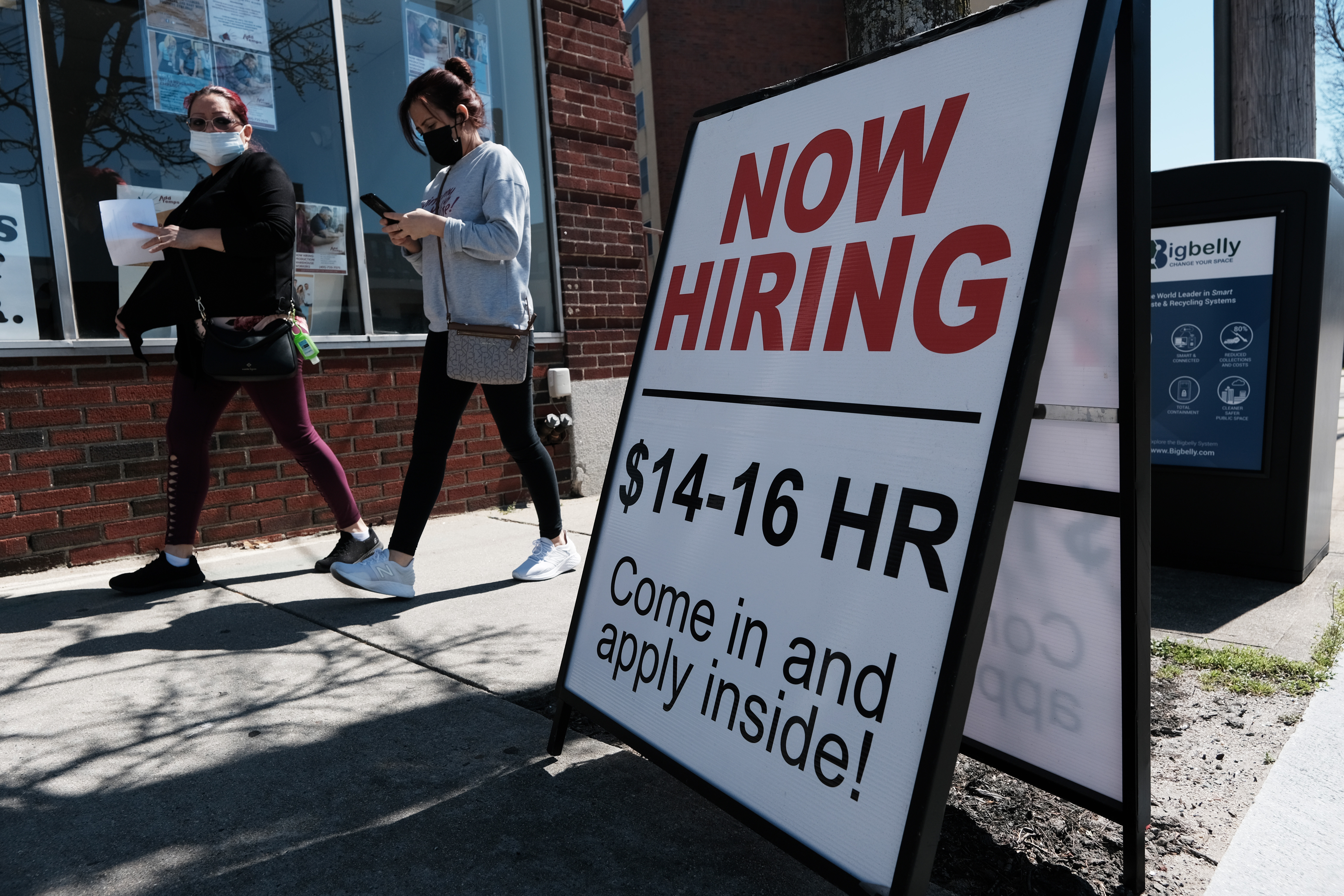The jobs are here. Where are the workers?
As the economy heats up, workers are scarce

The smartest insight and analysis, from all perspectives, rounded up from around the web:
A surprising labor shortage represents the next economic conundrum, said Peter Coy at Bloomberg Businessweek. At last tally, 6 percent of the population, or 9.7 million Americans, were unemployed and actively looking for work. But many businesses say they are finding hiring extraordinarily hard. The National Federation of Independent Businesses reported earlier this month that 42 percent of "small businesses surveyed said they had jobs they couldn't fill," compared with an average of 22 percent since 1974. Fear of contracting COVID is "clearly part of the problem." But there is also concern that workers have lost the desire to hustle. Instead of returning to their pre-COVID jobs, some workers are telling employers they're "better off unemployed."
In many cases, said Steve Hayes at The Dispatch, they are. At the beginning of the pandemic, "enhanced unemployment payments made some sense." Now, though, those payments — many months of extensions and a $300 weekly supplement — are keeping workers from taking jobs. When it comes to hiring, says Bill Anderson, a diner owner in Waterville, Ohio, "I've been in business for 33 years — this is the absolute worst it's ever been." Bill and his wife, Liz, kept Dale's Bar & Grill open through the pandemic, constantly worrying that with pay for a line cook running at $11 an hour, workers would leave. They tried offering $1,500 bonuses. "It didn't work." The end came when the kitchen manager took the bonus — then quit three days later anyway. Even as they saw customers returning, the Andersons gave up and shut their business.
Subscribe to The Week
Escape your echo chamber. Get the facts behind the news, plus analysis from multiple perspectives.

Sign up for The Week's Free Newsletters
From our morning news briefing to a weekly Good News Newsletter, get the best of The Week delivered directly to your inbox.
From our morning news briefing to a weekly Good News Newsletter, get the best of The Week delivered directly to your inbox.
Stories like this should be expected, said Jordan Weissmann at Slate. "Reports of hiring shortages crop up with every economic recovery," as employers "get used to the new normal." Despite all the complaints about hiring, the economy added a whopping 916,000 jobs last month, including 176,000 in restaurants and bars, and the "states with less generous unemployment benefits haven't seen their job markets rebound any faster" than those with more. The other lingering factor is child care. Many schools and day-care centers remain closed or on hybrid schedules, keeping parents from taking jobs.
Of course it's hard to find workers when "everyone is hiring simultaneously," said Conor Sen at Bloomberg. Employers will simply have to pay more. "Maybe a job that used to pay $12 an hour jumps to $17 an hour during this supply crunch." Because wages are sticky, that means higher pay in the long term. The "lasting legacy of COVID may be a better world of work, as it speeds changes that were already underway," said Callum Williams at The Economist. The labor market before the pandemic was already "better than many critics were claiming," with earnings in wealthier countries going up 3 percent a year, and even faster for the lowest-paid workers. Meanwhile, "the rich world's unemployment rate was lower than at any time since the 1960s." Job satisfaction was already increasing and insecurity falling before the pandemic. With the flexibility of post-pandemic "hybrid work," and a new focus on employees' rights, those heartening trends will only accelerate.
This article was first published in the latest issue of The Week magazine. If you want to read more like it, you can try six risk-free issues of the magazine here.
A free daily email with the biggest news stories of the day – and the best features from TheWeek.com
-
 Critics' choice: 2025 James Beard Award winners
Critics' choice: 2025 James Beard Award winnersFeature Featuring a casually elegant restaurant, recipes nearly lost to war, and more
-
 How will Trump's spending bill impact student loans?
How will Trump's spending bill impact student loans?the explainer Here's what the Republicans' domestic policy bill means for current and former students
-
 Can the US economy survive Trump's copper tariffs?
Can the US economy survive Trump's copper tariffs?Today's Big Question The price hike 'could upend' the costs of cars, houses and appliances